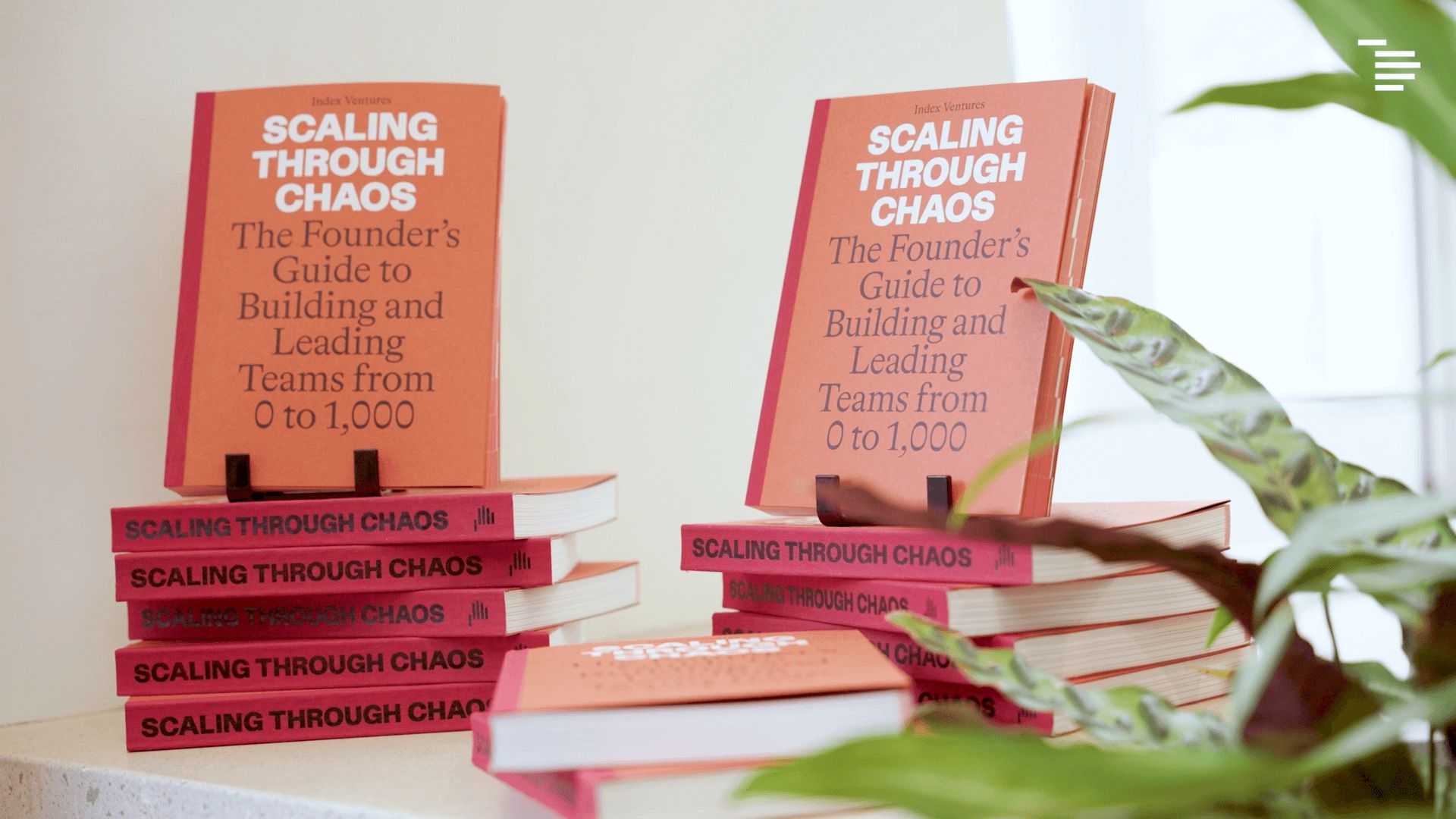Inside New York's Thriving Digital Health Alumni Network
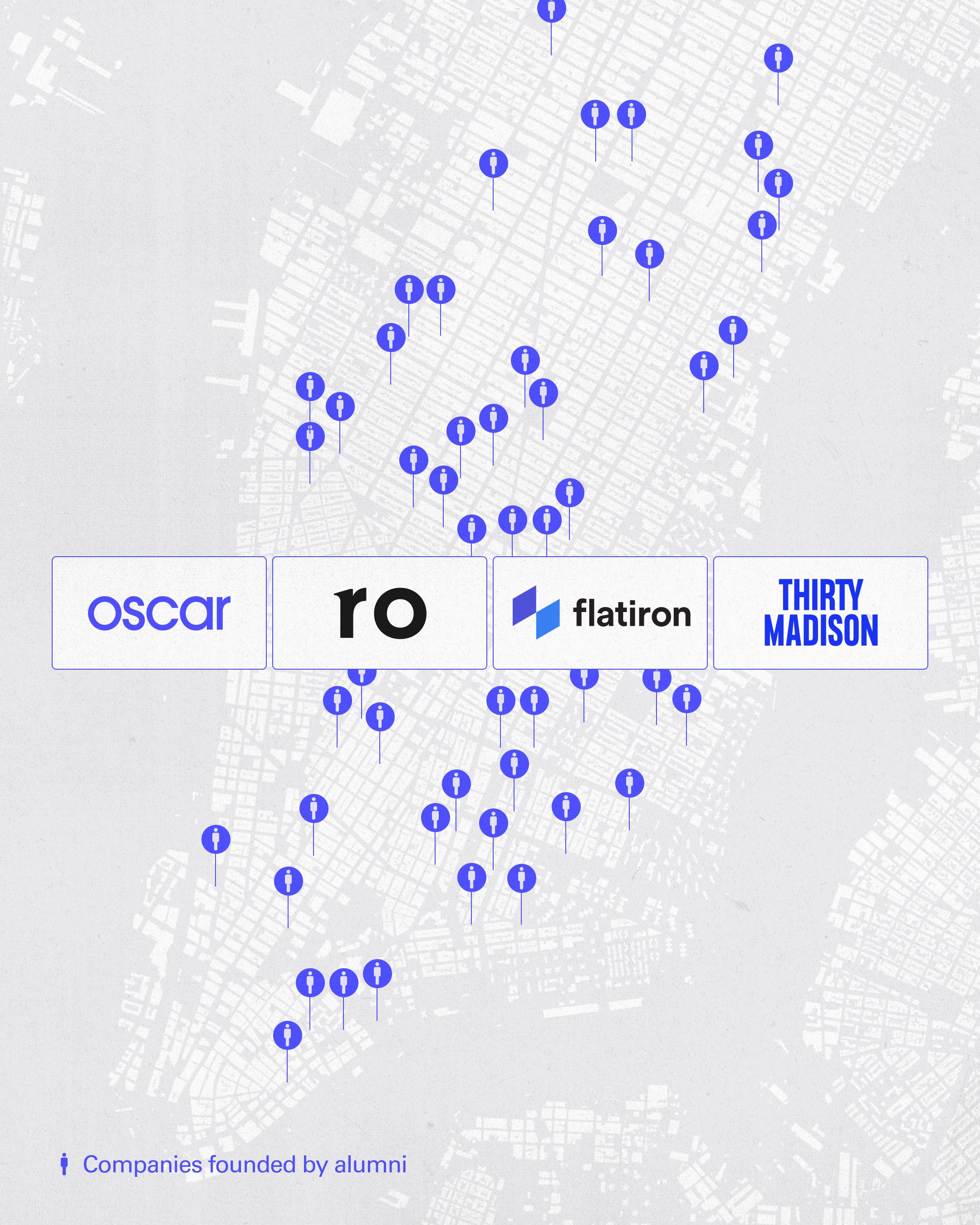
The tech world loves talking about powerful alumni networks.
So much so that we’ve given a major rebranding to a term once associated with New York’s crime families. There’s the PayPal Mafia. The Palantir Mafia. The Netflix Mafia. The Reddit Mafia. The Open AI Mafia. The list goes on and the talent on that list is top-notch.These days, mafias are a force for a different kind of disruption, with household name tech companies churning out the next generation of founders ready to leverage what they’ve learned at startups of their own.
Now, there’s a new crop of tech companies taking the training they received at industry giants and channeling it into startups of their own — and many of them are calling New York home.
Their industry? Digital health services. These companies are B2C on the frontend and B2B on the backend, automating the back office for providers. They operate as vertical SaaS, but behind the scenes, they go through long sales cycles with insurance companies. It’s a process that can feel like traditional enterprise sales, but with the added complexity of having patients as the customers.
Today, we’re spotlighting four OG companies at the heart of New York’s digital health startup boom: Flatiron Health, Oscar Health, Ro and Thirty Madison.
"We always told people that the only good reason to leave Oscar is to start a company. We thought it was great when people left to create something new."
—Mario Schlosser, Oscar Health
Just as Palantir alumni used their experience at a highly complex and regulated company to launch extremely successful ventures of their own, these digital health leaders are spinning out the next wave of startups worth watching. And they’re leaning on one another for support as they navigate the unique challenges of building in this space — chief among them the blessing and curse of payer relationships, which can finance growth, but also leave founders at the mercy of large organizations that can quickly change their economics for better or worse.
In the words of Oscar Health cofounder Mario Schlosser, “[When I was Oscar’s CEO] we always told people that the only good reason to leave Oscar is to start a company. We thought it was great when people left to create something new. We even held workshops for our employees on how to start businesses.”
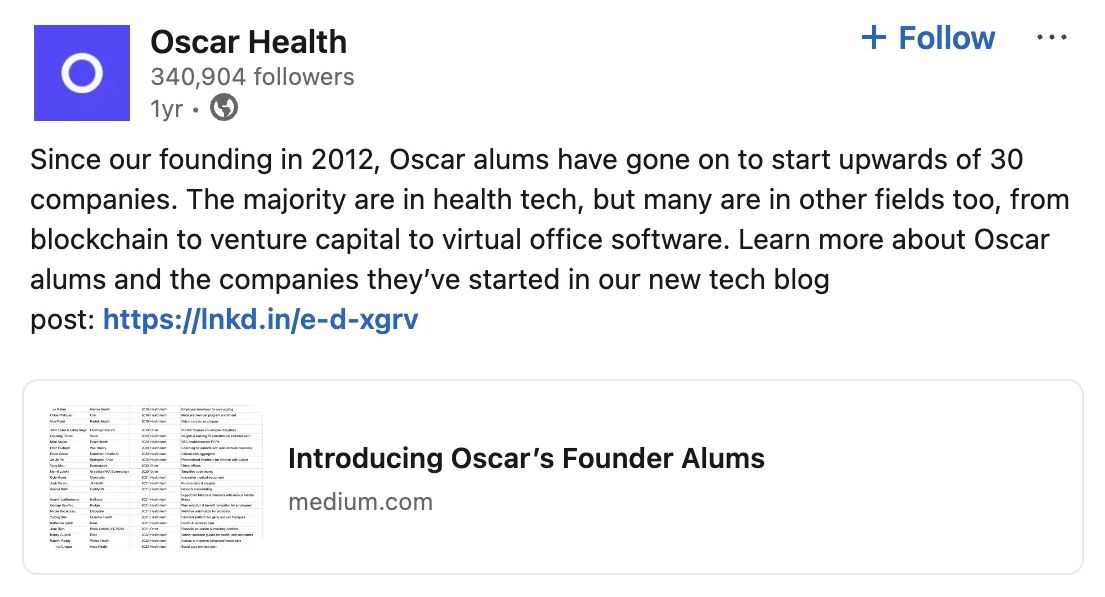
Today’s digital health founders who’ve seen early success embrace the power of their New York community. They’re able to turn to other entrepreneurs and ask highly specific, tactical questions about the playbook — for example, the payer relationship-building tactics that lead to the best rates. These are the types of decisions that can make or break a company, so tapping into the founder ecosystem is often critical to survival.
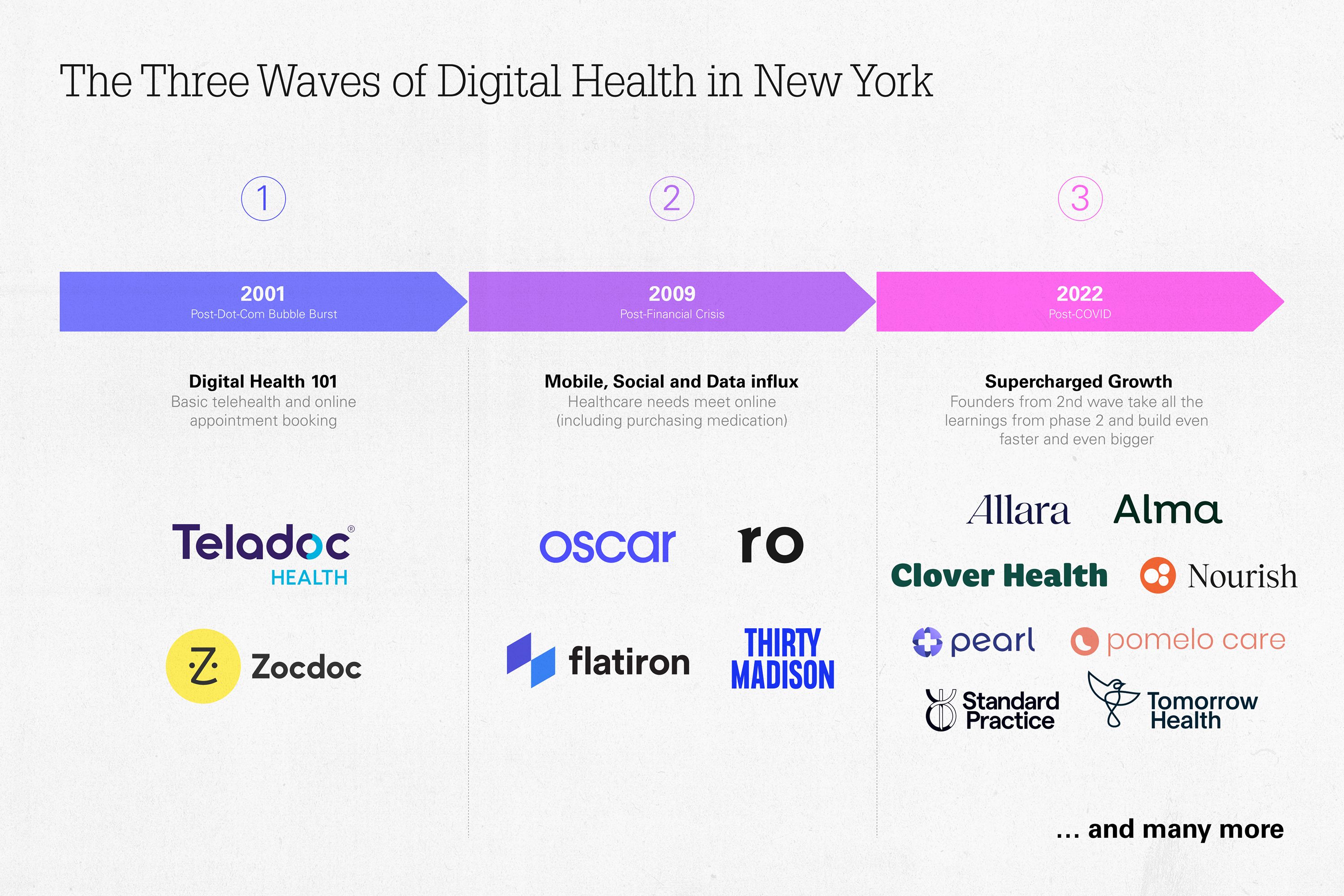
The 3 waves of digital health in New York
To understand how Flatiron, Oscar, Ro and Thirty Madison became incredible training grounds for future startup founders, it’s helpful to break things down into three waves:
Wave 1
After the dot-com bubble burst in March 2000 up until the financial crisis that started in December 2007, we experienced “digital health 101” — basic telehealth and online appointment booking without any additional bells and whistles. At the forefront of this wave in New York were Teladoc (founded in 2002) and Zocdoc (founded in April 2007).
Wave 2
After the financial crisis ended in June 2009, we entered an era characterized by mobile, social, and an influx of data. Go-to-markets were getting more complex, tools and infrastructure started improving, and there was far more capital available than before. This is when more verticalized companies cropped up as consumers started getting more comfortable having their healthcare needs met online (including purchasing medication).
In 2012, both Oscar Health and Flatiron Health set up shop in New York. Five years later in 2017, Ro and Thirty Madison followed suit. The timing was right for all four companies, though for different reasons. Oscar needed access to a significant amount of capital to realize their vision of reinventing insurance. Flatiron Health needed a critical mass of data to reimagine cancer care. Ro and Thirty Madison needed the infrastructure to reimagine telehealth (sans-insurance) and a population that was ready to embrace buying medication online.
Wave 3
Post-COVID, we’re seeing founders from the second wave start their own companies, supercharging the trends above in the process. They’re taking all the learnings from their experiences at Oscar, Flatiron, Ro and Thirty Madison and using that to build even faster and even bigger.
In the words of Flatiron co-founder Zach Weinberg, “when we started in 2012, people were scared of health care because of the complexity and how slow it moves. Relative to whatever tech company was in vogue at the time, I think healthcare was viewed as too hard and too complicated… especially by technical people. We were still reasonably early in the electronic health record transition at that time, so even the infrastructure to do things that are internet-connected was pretty new.”
Then, a big tailwind happened, and in Zach's words, “you had a few successful examples of tech people figuring it out. That’s when the perception of the risk and complexity of starting a healthcare company changed.”
The industry shifts powering the next wave of digital health
Following a pandemic that led to more people than ever going online for their healthcare needs, we saw several critical changes that helped usher in this current wave of startups:
- Consumer priorities evolved:
McKinsey estimates that the global consumer wellness market represents $1.8 trillion. As of August 2023, 82% of US consumers reported that wellness is a top or important priority in their everyday lives. COVID-19 also brought mental health into the spotlight in a way we’ve never seen before.
- Telehealth adoption skyrocketed:
While our inability to visit doctors in person during the pandemic was temporary, more and more patients saw the convenience (not to mention the depth and breadth) of healthcare services that were just a few clicks away. Now, there’s no going back. As insurance companies realized that patients were turning to telehealth in record numbers and the revenue opportunity this posed for them, they began reimbursing for more services than pre-pandemic years — at competitive rates. The ripple effects have been dramatic. Our access to quality care from our computers is greater than ever.
- Political support for healthcare technology grew:
As politicians were forced to acknowledge how fragile healthcare in the US really is, they started turning their attention to technology to reduce costs, improve services and increase resiliency. Legislation was passed to make healthcare data more open and accessible and to lower the cost of medication.
- New investors started paying attention to healthcare:
Digital health startups experienced a surge in investments from outside the healthcare industry. Health tech companies raised $2.2B in the first half of 2024. That’s about 35% more than the same period the year before. New York City was also home to ⅕ of all women’s health tech deals in the US last year. But many of these deals haven’t come from investors that built their careers investing in healthcare. Instead, this new generation of healthcare investors became successful investing in technology companies with pragmatic, operationally-savvy and commercially minded founders. And now they’re applying their knowledge to an industry that’s getting hotter and hotter by the day.
7 Standout digital health founders building in New York
Who, exactly, are the founders behind New York’s network of digital health talent? We went searching for alumni founders that cut their teeth at Oscar, Flatiron, Ro and Thirty Madison. Below are some of their New York stories.
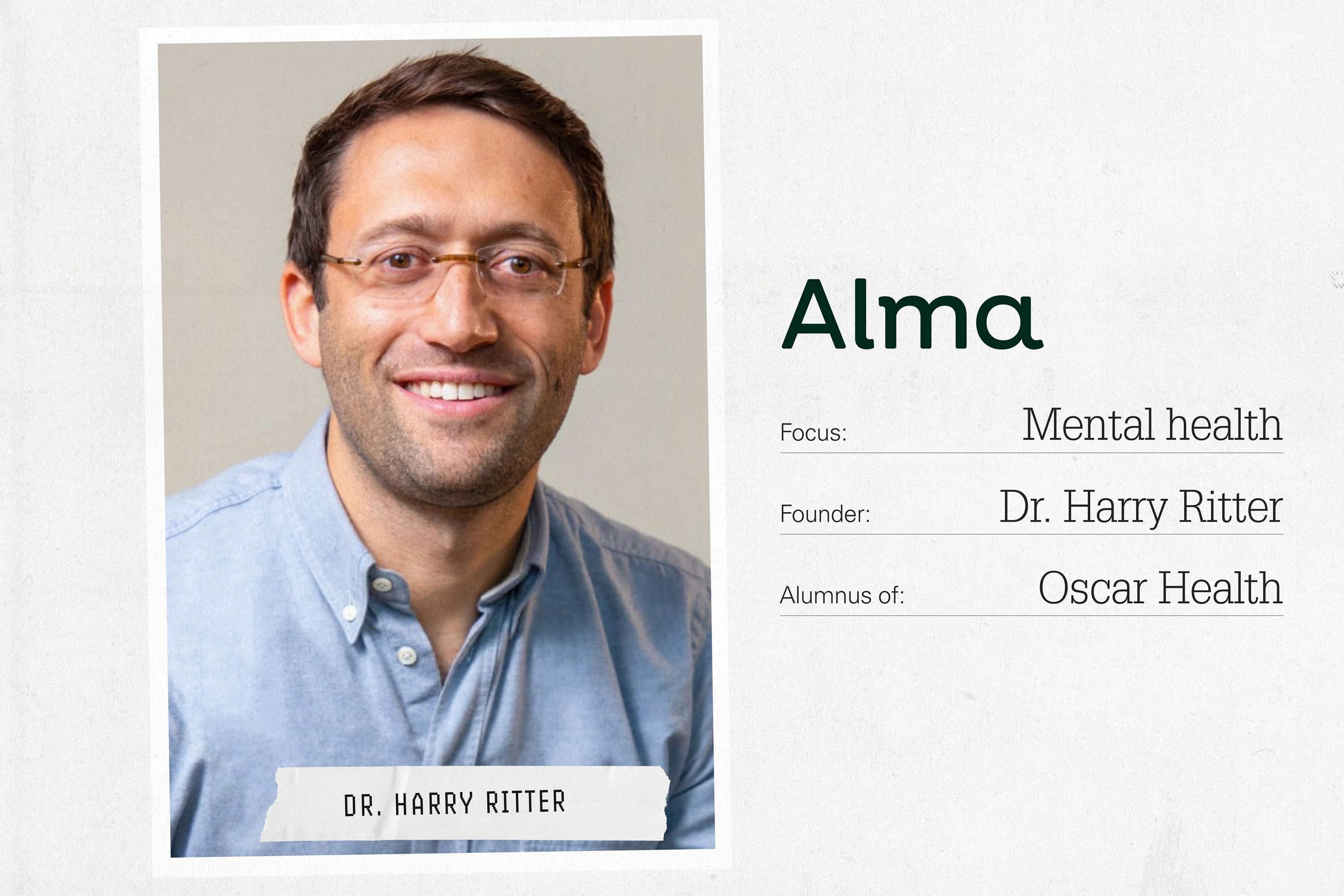
“Working at Oscar taught me the importance of believing in the possibility of doing the impossible,” Harry shared about the lessons he learned that helped him build Alma. “We operate in an incredibly complex and regulated industry where it’s easy to get defeated. Despite these challenges, Mario (Oscar co-founder and former CEO) always led with unfettered optimism. He believed that a relentless belief in the company mission and a strong customer journey would allow us to succeed where other companies had stumbled.”
“Oscar was known for having ‘the hoodies and the suits’ sitting side-by-side. At Alma, we’ve worked hard to build bridges between mental health care providers and some of the largest insurance companies in the country.”
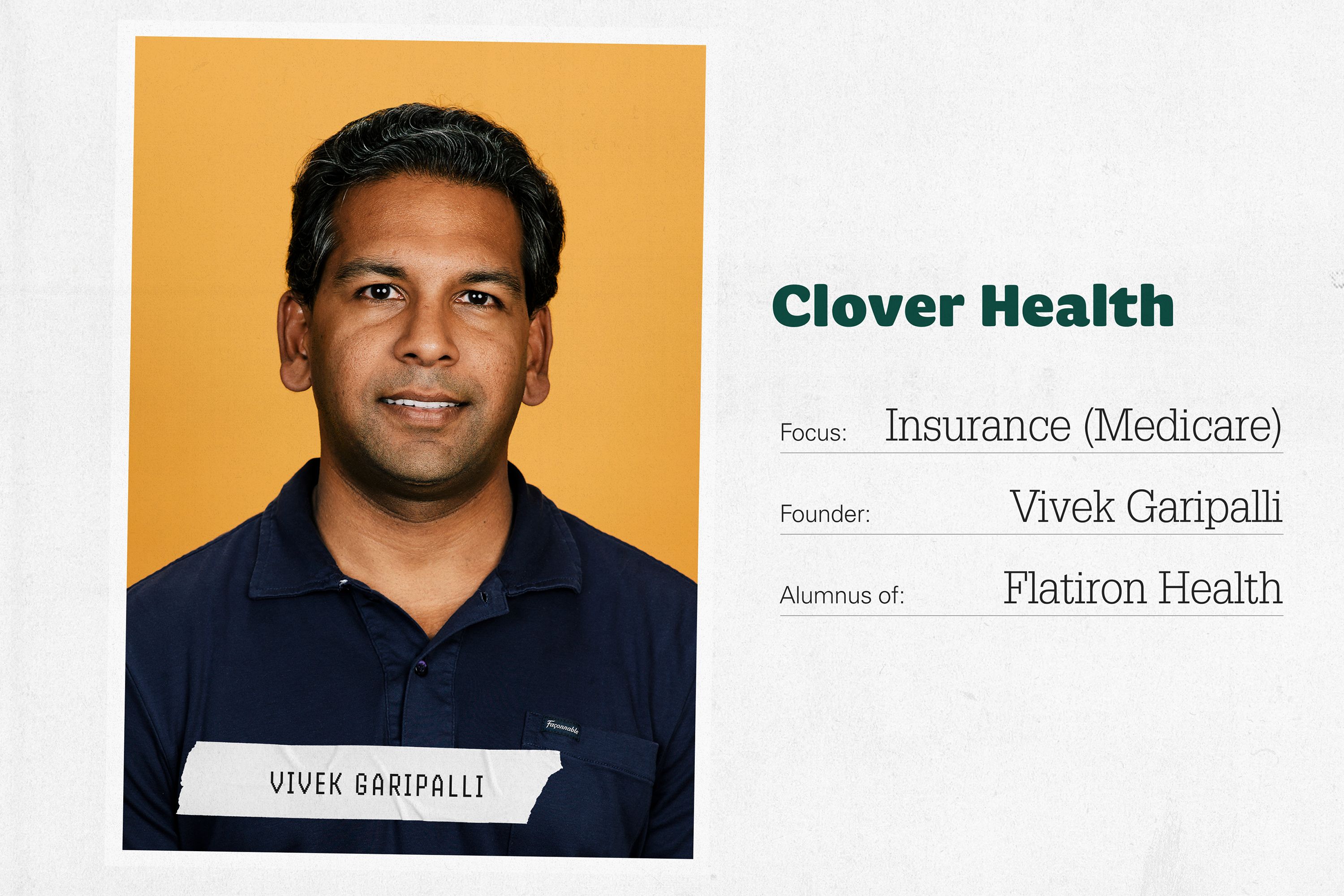
Note: While Clover Health is based in Nashville, Tennessee, Vivek calls New York home. We chose to include Clover in this roundup because of Vivek’s ties to the city’s digital health ecosystem here.
Vivek connected with Nat Turner and Zach Weinberg even before Flatiron Health was founded, helping them form the idea for the company and entering as a pre-seed investor. He advised the company on their strategy and business model, including leading the acquisition of its data platform, Altos. Vivek then sat on Flatiron’s board through its sale to Roche in 2018. He’s played a similar role as an investor and advisor for New York-based CityBlock Health.
In 2014, Vivek founded Clover Health and served as CEO until December 2022, continuing as Executive Chair of the Board.
As an investor at Wormhole Capital, Vivek has also backed New York-based healthcare startups Accomplish Health, Curie.Bio, KindBody, Parachute Health, Headway and World Class Health.
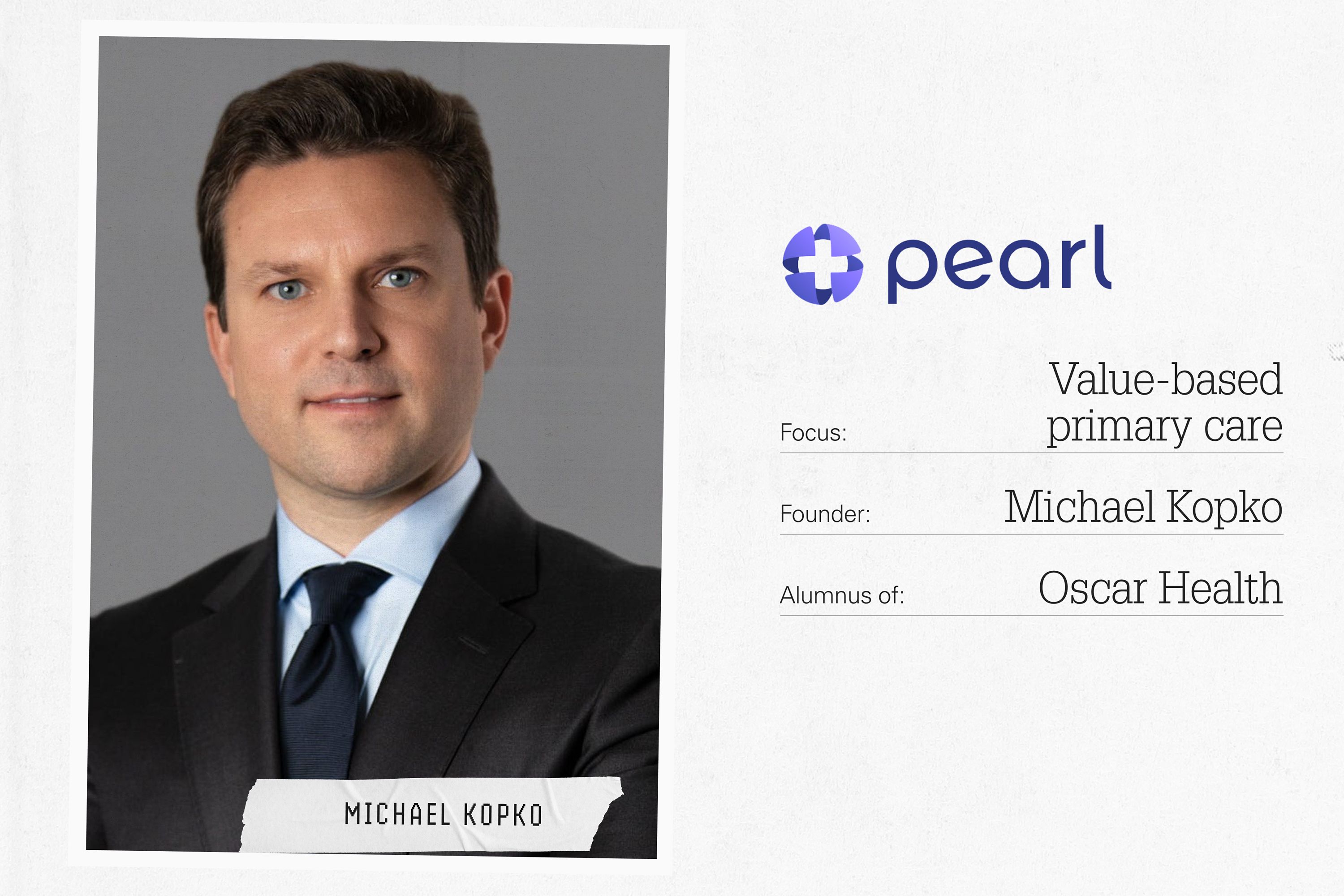
“Building an insurance company from scratch to IPO teaches you tremendous lessons in how healthcare is delivered in our country and what systems and strategies work and don’t,” Michael shared about the experience that prepared him to found Pearl Health. “This education can't be gained in the classroom, it comes from experience. It teaches you about the stages of a company, and the grit and pain that’s normal versus unhealthy. Going through it once helps you sort out the signal from noise when you’re leading your own start-up. In many ways it was the training wheels to riding the bike on my own. [And] with the age of AI, changes in capital formation, and changing demographics, there isn’t a better melting pot on earth than New York to build world-changing companies from.”
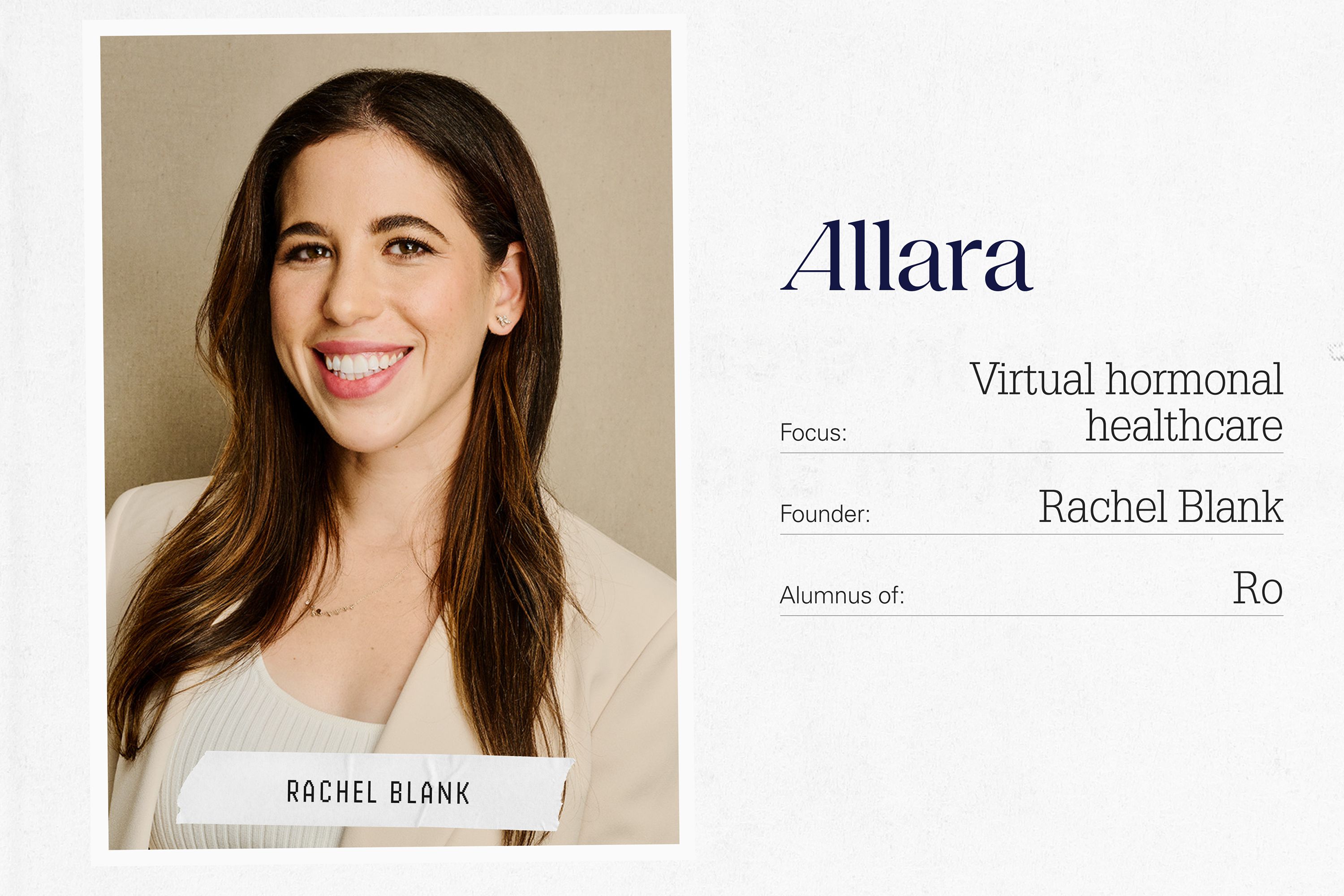
“At Ro, I worked in strategy, and a big part of my role was ideating new categories for the business and then helping establish those,” Rachel shared. “I worked on launching new service lines, learning valuable lessons on how to validate and pilot new concepts while working within a larger organization. She also got to work closely with and learn from Ro’s CEO, Zachariah Reitano. “He’s an absolute best-in-class example of what it means to be a great founder,” she said. “As I’m working on Allara, I’ll think about how he approached things and use that as guidance." Why New York? In Rachel’s words: “Companies like Ro, Oscar and Flatiron helped build a really strong healthcare scene here. Now, not only have I been able to find really great talent, but I also have a strong healthcare founder community to talk to and lean on.”
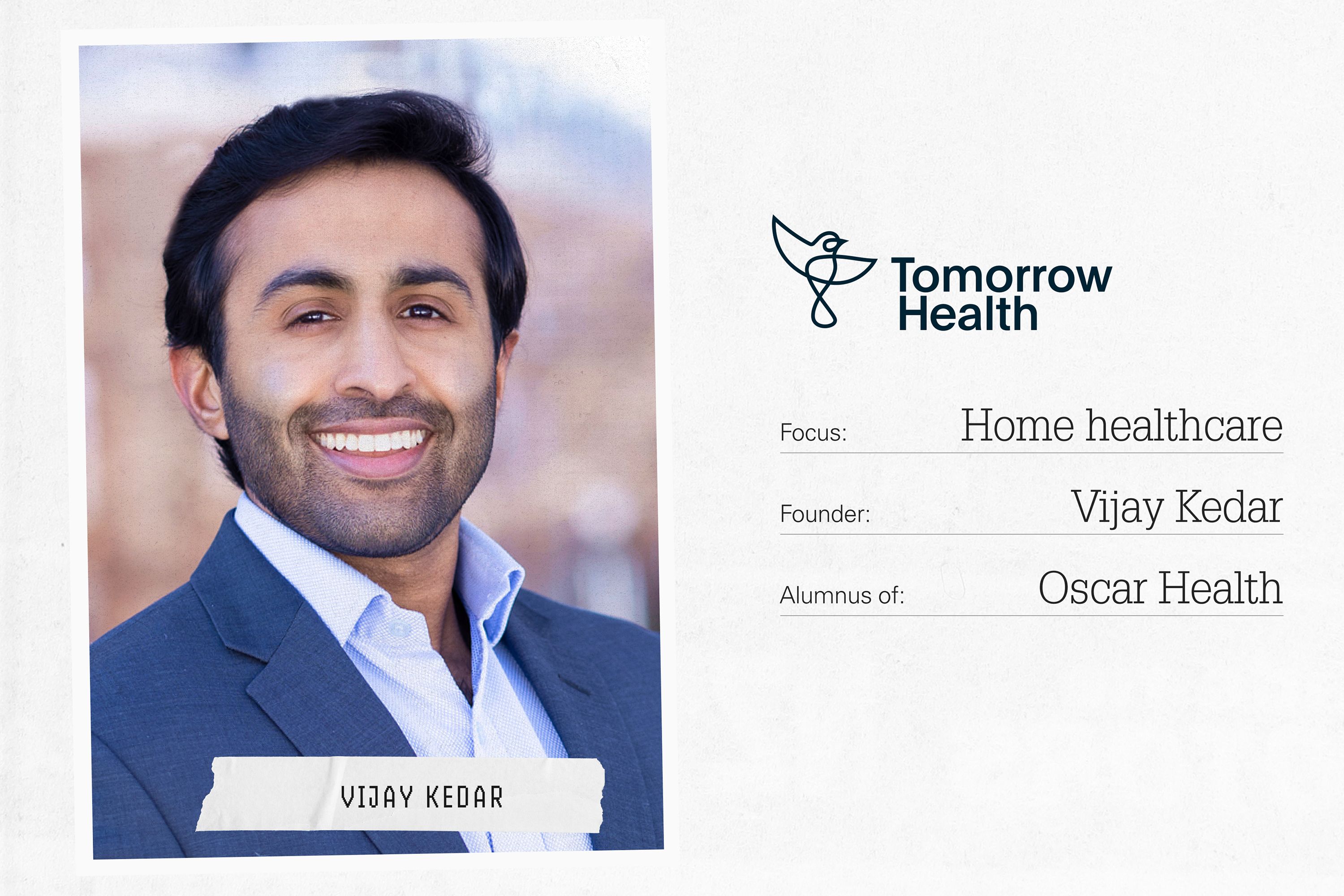
“The experience at Oscar taught me a lesson that has become one of our Tomorrow Health values: change the system from within. Healthcare is a space that can’t be effectively disrupted from the outside.” Vijay also credits the opportunity to work with colleagues across an incredible range of fields at Oscar — a mix of talent that’s often unique to digital health. As he put it, “the opportunity to bring together world-class engineers, data scientists, clinicians, and operators in a culture of cross-collaboration and mutual respect unlocks a completely novel way to approach persistent industry problems."
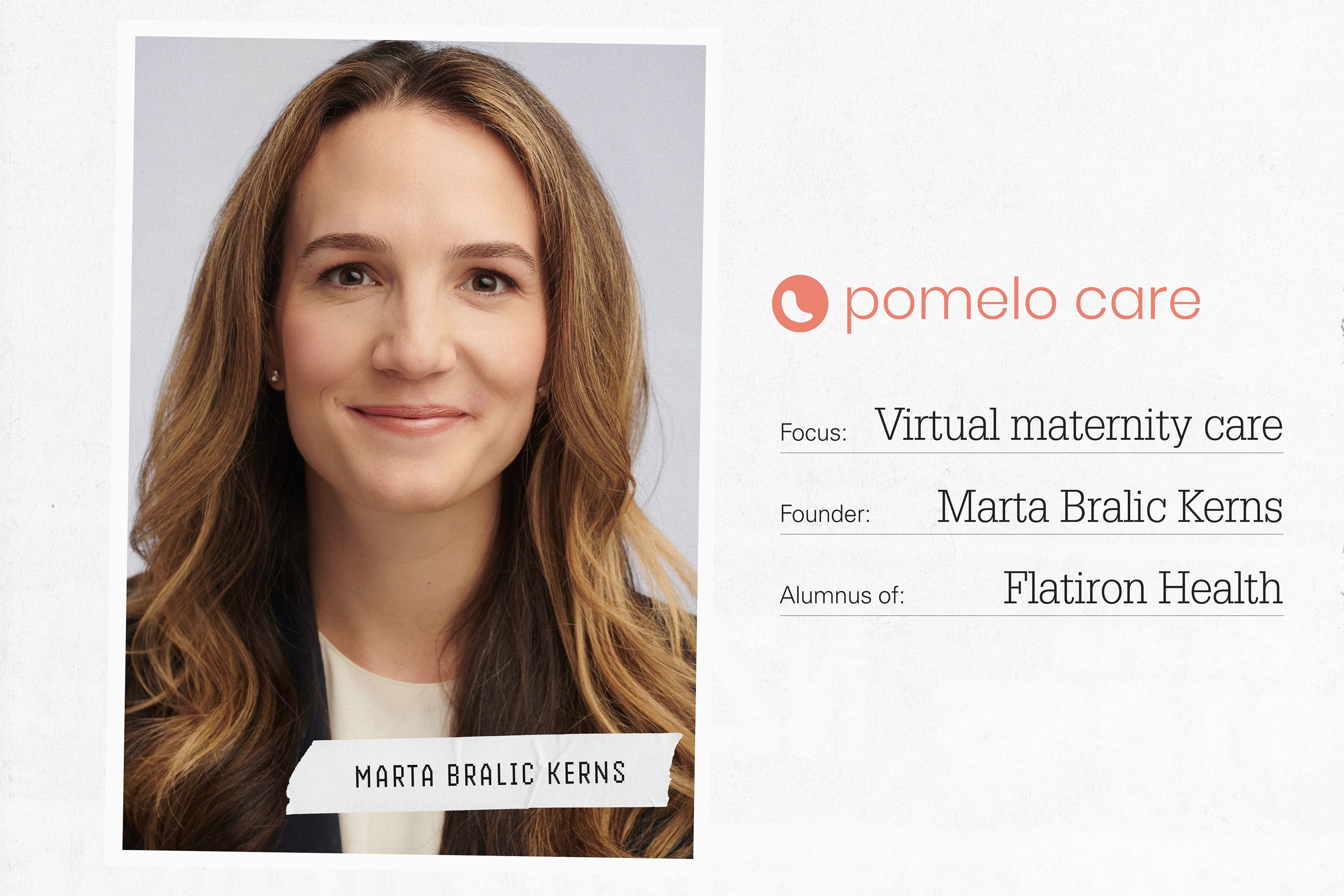
Marta joined Flatiron to support its founders with strategic planning, partnerships, and growth initiatives. She worked her way up to SVP of Business Development before deciding to build Pomelo Care. She saw a pressing opportunity to address the gaps in maternal and infant healthcare, particularly for high-risk populations, where provider capacity is often limited. Determined to build a care model that could truly improve both care and outcomes, she set out to drive systemic change in the U.S. healthcare system and ensure that every woman and infant receives the care they deserve.
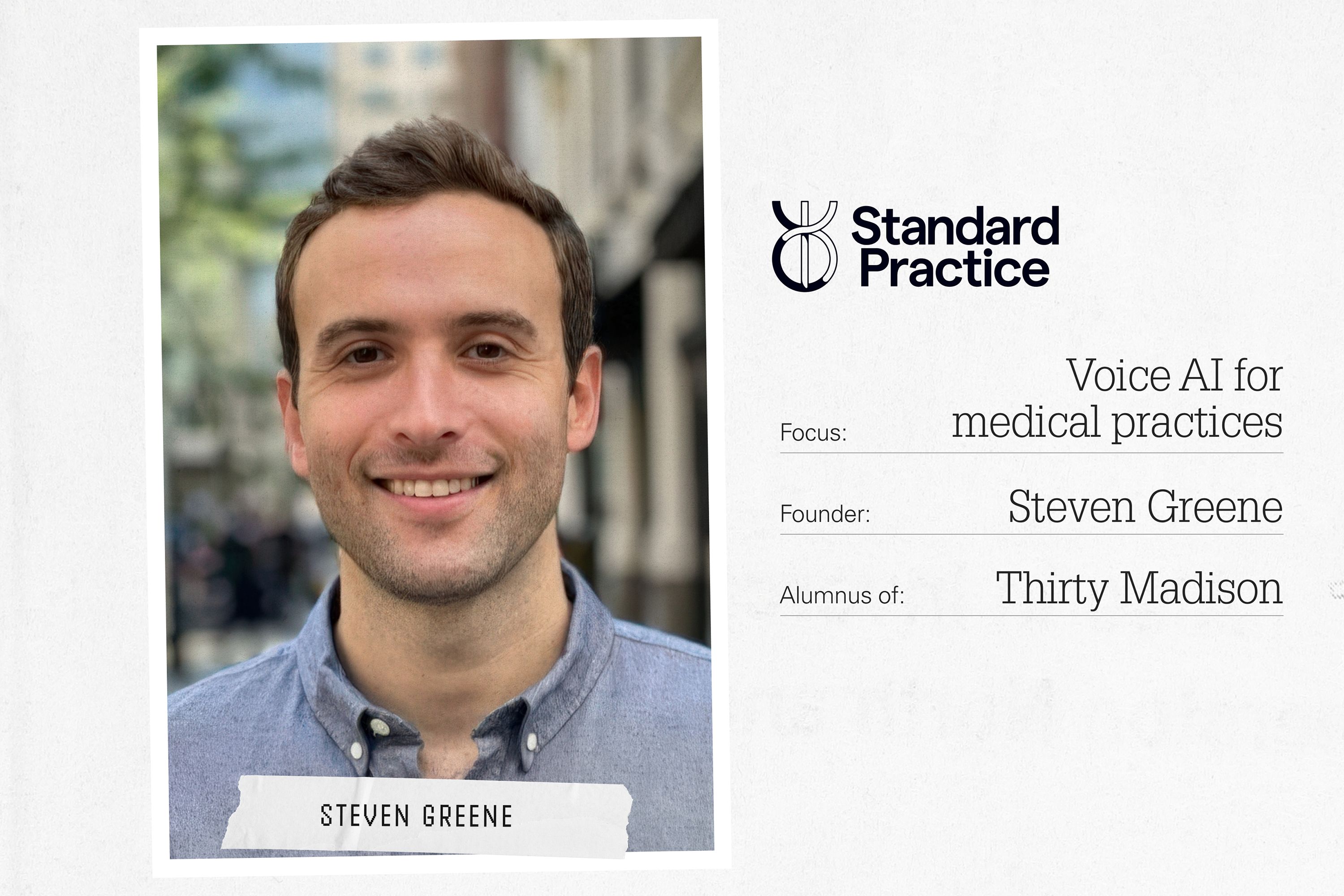
“My mandate as Thirty Madison Chief of Staff was to be an extension of the founders and help the company run effectively,” Steven shared. “I viewed my role as being split into three functions: operational rhythm, special projects, and triage. Doing each of these over the course of two years — all while watching revenue skyrocket, navigating multiple funding rounds, scaling to hundreds of employees, signing major partnerships, launching new businesses and more — gave me a pretty unique insight into what it takes to build a startup.”
“When I left to start Standard Practice, almost all of our initial angel checks were from senior leaders at Thirty Madison."I’ve often leaned on them for counsel and connections, especially when it comes to hiring and go-to-market” he shared. That support extended to the broader New York ecosystem, too. “There have been countless times I’ve been connected to someone on a commercial opportunity only to find their office is around the block and we decide to meet in person,” he shared. There’s an outsized potential for rich, meaningful interactions when you’re in such a concentrated area. New York is an incredible hotspot for meeting people where they are, sourcing early users, getting deals done, and finding out if your product is real or not.”
Also worth calling out: When you look beyond the founders themselves to their broader teams, it becomes clear that this experience transfer is helping to power an even greater number of New York-based digital health startups. Among standout companies with talent from Oscar, Flatiron, Thirty Madison and Ro: Nourish, Hims & Hers, Maven Clinic, Headway and Grow Therapy.
What’s next for digital health in New York?
We expect the Oscar, Flatiron, Ro and Thirty Madison alumni networks to get even stronger in the coming years — and for new digital health alumni networks to crop up in New York. We’re already starting to see more and more talent movement among these new companies, specifically with wave three startups poaching talent that were trained by wave two standouts.
In the words of Allara founder Rachel Blank: “New York has become the nexus of health tech and that will only continue to grow.” Gone are the days where health existed in a silo. Now we’re seeing a growing convergence across industries. For example, her company has pulled in experts across fintech, insurance and AI.
There’s no denying we’re in the midst of a monumental shift to the digital health landscape in New York, largely set in motion by great founders that have graduated from industry-disrupting companies to make their own mark on the industry. And we’ll be keeping a close watch to see the moves these healthcare-minded founders make next.
Published — March 27, 2025


